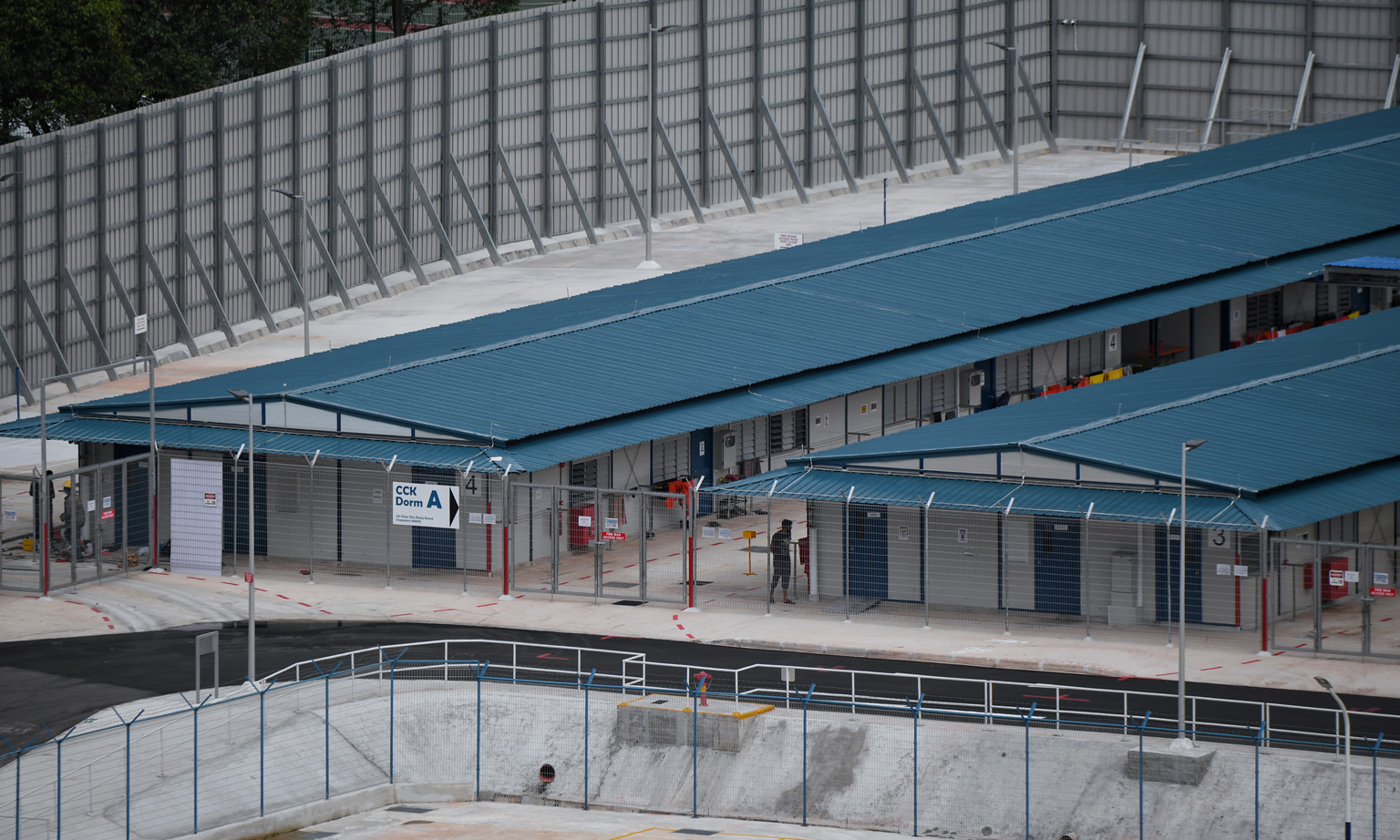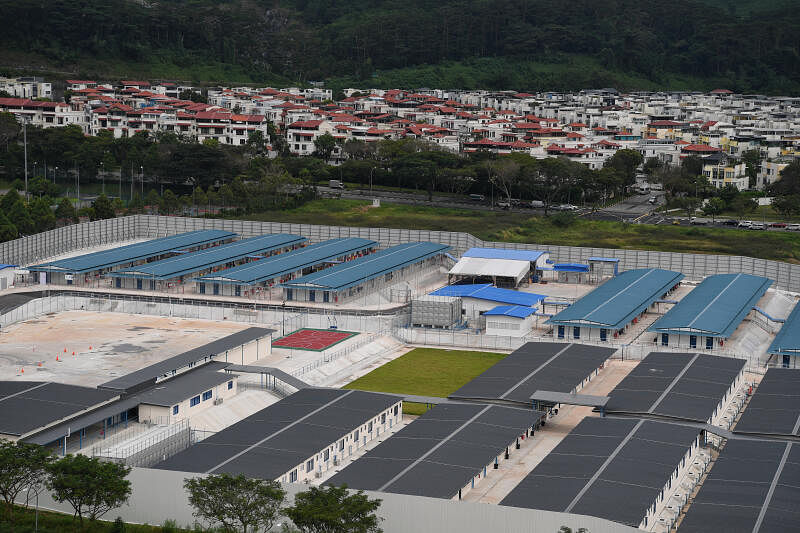COVID-19 SPECIAL
Migrant workers move into first Quick Build Dorms
Part of pilot scheme, semi-permanent lodging offers better living standards to cut virus risk
Sign up now: Get ST's newsletters delivered to your inbox

One of the new Quick Build Dormitories, which is located in Choa Chu Kang Grove. It started taking in residents about a week ago. For now, workers are allowed to leave the dorm only for work. The dorm has facilities such as remittance services, a minimart, barbershop and gym.
ST PHOTO: KUA CHEE SIONG
Migrant workers have started moving into new dormitories with improved living standards to minimise the risk of future infectious disease outbreaks, The Straits Times has found out.
Since the start of this month, they have moved into at least two of the eight Quick Build Dormitories (QBDs) that were due to be built by the end of this year, in Choa Chu Kang Grove and Kranji Way.
The QBDs are semi-permanent structures meant to last two or three years, with a total capacity for about 25,000 workers.
They were announced by the Covid-19 multi-ministry task force in June to reduce density in the dorms. They are meant to serve as a test bed for the Government to pilot improved standards for dorms before it decides on specifications for new permanent ones.
Dorm residents have accounted for 94 per cent of Singapore's nearly 58,000 coronavirus cases so far. The number of cases in dorms spiked in April, before tapering off in August. There have been no more than five cases a day in dorms this month.
The new standards being piloted at QBDs include having no more than 10 beds per room, with at least 1m spacing between them. Previously, there was no limit to the number of beds per room and it was common to find 12 to 16 people sharing one room.
The new standards also include having fewer residents share common facilities such as toilets, bathrooms and sick bays.
The new dorms, which took about four months to build, are located in Kranji Way, Tuas Crescent, Tuas South Boulevard, Jalan Tukang in Jurong, Admiralty Street, Choa Chu Kang Grove, Choa Chu Kang Way and Tampines Industrial Avenue 2.
Four dorms are operated by Westlite Accommodation, a subsidiary of dorm operator Centurion Corporation, whose winning bid of $1.09 million in monthly rent to JTC Corporation secured it the right to lease and manage up to 6,400 beds for three years. Two other dorms will also be managed by private operators.
The website of the Kranji Way dorm states it has 1,300 beds. Facilities include five-bed apartments, en-suite bathrooms and personal lockers.
According to tender documents, Westlite Accommodation will set the rental rates for the beds, which must be "fair and reasonable" and not exceed market rates.
The QBD in Choa Chu Kang Grove also started taking in residents about a week ago, said Chua Chu Kang GRC MP Don Wee.

For now, workers are allowed to leave the dorm only for work, with arranged transport to take them to and from work.
The dorm also has facilities such as remittance services, a minimart, barbershop and gym.
Mr Wee said: "Although we welcome the workers to Chua Chu Kang, some residents have expressed concerns about potential disamenities that could be caused. We seek residents' understanding not to stereotype workers of any one nationality."
Observers believe that such a "build-and-lease" model has its benefits.
Mr Alex Au, vice-president of migrant rights group Transient Workers Count Too, said the JTC-developed dorms may be a better alternative to purpose-built dorms, depending on how it is implemented.
For purpose-built dorms, private dormitory operators tender for a plot of land for a longer lease period of, say, 10 or 20 years. They bear the costs of building the facility, which translates to high sunk costs for them.
But the operators may face unpredictable demand for bed spaces over the dorm's lease period, he pointed out, as this very much depends on government regulations. If foreign labour rules are tightened, for instance, they may find that they have overbuilt.
Mr Au said: "Due to this unpredictability, it is quite understandable that a private investor may want to recover its investment as much as possible. This could translate into overcharging in the initial years."
This "build-and-lease" model would curb an operator's incentive to overcharge, he said.
Singapore University of Social Sciences economist Walter Theseira said the "build-and-lease" model allows for shorter lease terms, which also gives the Government more control over standards.
For instance, if a dorm operator fails to deliver, his contract can be discontinued when the lease ends and a better operator can come in to ensure better living standards, he added.


